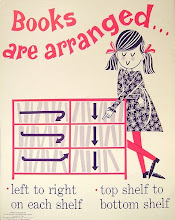I have to be completely honest here. After reading all of these pieces on the process of writing, I dreaded actually writing anything. Even a blog. To me, it was like thinking too much about how one breathes. I seriously almost had a literary panic attack.
I am certainly not implying that writing comes as naturally to me as breathing. I often struggle with writing, as I believe everyone does from time to time. Call me a Romantic, but I think writing should be processed organically. Even the term "process" makes me leery...though I do not know with what word I should replace it. So, onto the readings!
Tobin - First off, I really liked his frank style. I liked how he recognized the usual procrastination (on the end of the student and the teacher) on writing college papers, as well as the hesitation to teach composition. Tobin, as a professor, also had an extremely positive attitude towards the writing he received from his students. He said he looked for possibility and potential in his students' writings, rather than inspecting their papers purely for assessment. Ultimately, he joined the two ideas of process and product and acknowledged them as not having to be completly binary oppositions. I think that a lot of these pedagogies can be meshed for the benefit of the student and the professor.
Perl - I thought this intro did what it was supposed to do - it overviewed a lot of the different approaches and studies on writing and composition. I liked how Perl pointed out questions that have been plaguing the study of writing since the beginning of its research. I'm not really sure how to respond to her introduction, as a lot of the comments I have to make have to do with researchers or theorists she quoted throughout the piece. I liked that it was mentioned that writing is usually not a linear process, that if writing is seen as a problem then people make it into one, that writing is, on some level, a social activity, etc. Of course, I am paraphrasing a lot of quotes found within the piece.
Emig - What I got from Emig's essay is that people that society recognizes as great writers often cannot describe their exact processes when it comes to writing. What that tells me is that the composing process is really an undefinable thing. The quote from John Ciardi about riding a bike was an appropriate one, I thought. If you sit back and analyze something enough, it becomes difficult to actually execute it. In the spirit of me being open-minded, I will play devil's advocate for a second. Most likely, all of these writers who were interviewed were seeing their writing as an artistic expression. It must be hard for them to think of this artistic outlet as something that should or can be formulated. I could even go far as to compare writing to painting. A lot of painters start out with a pencil sketch, which I could liken to an outline. That makes sense, I guess. I think the type of outline and how formal it is should be left up to the writer and students who are writing should be in charge of making their outline as formal as they think it needs to be. None of this one-sentence-on-an-index-card routine like I was taught in high school.
Faigley - Yep, I'm of the Expressive school, it seems like. I think maybe during our online class it came across to everyone that I did not believe in room for improvement with one's writing ability. I wouldn't be going to school to be a teacher if I believed that. I think that writing may come to some people with greater ease than it does to others. Just like some are born with a runner's body and then others have Edwardian piano legs for gams (like me). The thing is, I sort of agree with the Romantics that there are things like inspiration and that "'good' writing does not follow rules but reflects the processes of the creative imagination" (152). Faigley points out that if this is the case, then every writer's piece should contain evidence of "false starts and confused preliminary explorations of the topic" (153). I disagree. Writing isn't purely a mirror to one's thoughts or imaginations...the writer is obviously capable of making change within his or her piece.
The Romantic idea of "self-actualization" is also an interesting one. I agree with the Romantics that writing should lead the writer to a certain level of actualization...it's a journey of discovery to some degree. I've written things before and have gone back and been surprised at what I have pulled out of myself (that sounds gross...it wasn't intentional).
I think that's all I had to say about those things. I've also just received a phone call from a beautiful man who was inviting me to go have drinks with him. This rarely happens, so wish me luck!
Subscribe to:
Post Comments (Atom)

No comments:
Post a Comment